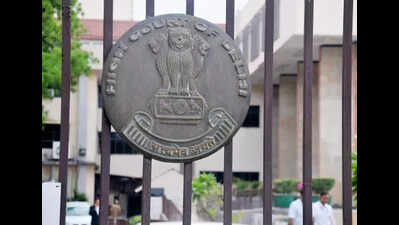- News
- City News
- delhi News
- Simplify settlement of bills and discharge process at hosps: HC
Trending
Simplify settlement of bills and discharge process at hosps: HC
New Delhi: Highlighting the "harassment and mental trauma" faced by patients and their family members during hospital discharge and bill settlement, Delhi High Court has called for a regulatory mechanism to ease the process.
The court, in an order on Thursday, said the Centre, Delhi govt, and statutory bodies must step in to carve out a regulatory policy while dealing with the case of a lawyer who accused Max Hospital, Saket, of several offences, including cheating, wrongful confinement, and breach of trust.
You Can Also Check: Delhi AQI | Weather in Delhi | Bank Holidays in Delhi | Public Holidays in Delhi
Giving a clean chit to the hospital as far as criminal offences were concerned, the high court, however, flagged the tendency of patients being harassed over pending bills.
The court stressed that while the petitioner's grievance was understandable, the scenario did not constitute a criminal offence. "Much angst has been expressed at many forums about the delay in insurance approvals. This may be a ground for seeking compensation for mental harassment but not for criminal prosecution," the judge stated.
The case involved a lawyer diagnosed with cysticercosis in his right hand, who underwent surgery at Max Hospital. He held a cashless insurance policy with Max Bupa Health Insurance, which included Max Hospital in its network. However, due to limited pre-authorization, the hospital asked him to deposit the balance at admission. He later alleged that this amounted to fraud and wrongful confinement.
The high court upheld the sessions court's ruling, stating that no fraudulent intent could be ascribed to the hospital. "Though it may seem onerous, requiring a patient to deposit the balance when pre-authorisation is limited cannot be termed extraction of money or dishonest conduct. The patient was informed in advance."
It was further explained that the patient's insurance only covered a standard room, whereas he availed a deluxe room. The difference of 57,332 was adjusted from his deposit.
The court reiterated that such situations highlight the need for regulatory reforms. "Despite recommendations from various courts and the NHRC's proposed Charter of Patients' Rights, no final framework has been implemented. This is an area that must be addressed jointly by the Centre, Delhi government, IRDA, and medical councils," it said.
End of Article
Follow Us On Social Media








